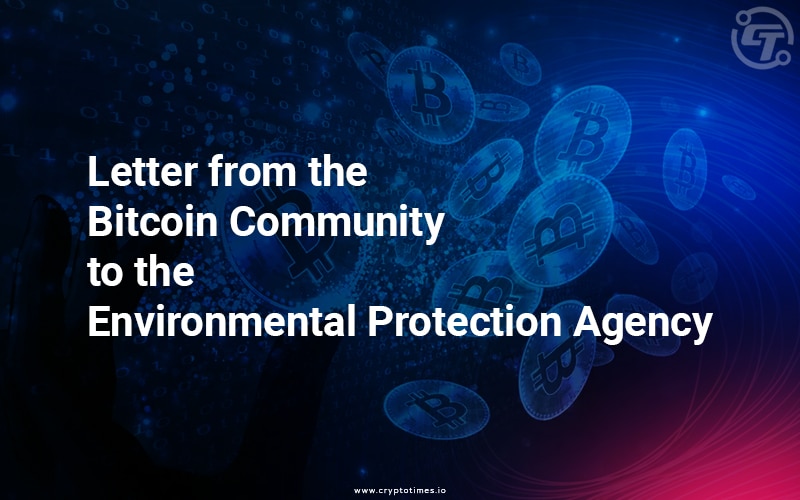The Bitcoin Mining Council including Jack Dorsey, Tom Lee, and Michael Saylor, have come together to send a letter to EPA denying accusations made by House Democrats on the environmental effects of bitcoin mining.
Rep. Jared Huffman, along with nearly two dozen other House Democrats, wrote to the Environmental Protection Agency last week, requesting that the agency ensure mining companies follow the Clean Air Act and Clean Water Act.
The letter cited “serious concerns regarding reports that cryptocurrency facilities across the country are polluting communities and are having an outsized contribution to greenhouse gas emissions.”
A group of bitcoin miners and industry experts then had to send this rebuttal letter to EPA Chief Michael Regan arguing that House Democrats got a lot wrong in their messaging about the fundamentals of proof-of-work mining.
Data centers with miners are no different than data centers owned and operated by Amazon, Apple, Google, Meta, and Microsoft, according to the response letter. Each one of them is simply a building in which electricity is used to power IT equipment that runs computer tasks.
Darin Feinstein, co-founder of crypto mining firm Core Scientific, and one of the letter’s key authors added that the house democrats’ statement is misleading the public.
He noted that the pollution is caused by the energy generation source, and all data centers purchase electricity off-site, upstream. A single Bitcoin transaction, as per the letter, uses the same amount of energy as an ordinary American household for a month.
Alternative mining mechanisms such as Proof of Stake offer 99.99% lower energy demands than Proof-of-Work networks like Bitcoin and Ethereum, according to the house democrats’ letter to the EPA.
According to the council, comparing the two systems is qualitatively different because they do not achieve the same thing.
The letter also refutes House Democrats’ claim that fossil fuel-based facilities are being reactivated to support crypto mining. The council stated that quite the opposite is occurring, adding that the trend is towards renewable energy generation.
As stated in the letter to the EPA, the council also refuted the e-waste assertion saying that the legislators highlighted a widely criticized research report that makes bold assumptions about the depreciation timeframe for mining equipment.
According to Huffman’s letter, bitcoin mining alone produces 30,700 tonnes of electronic garbage each year. “The industry must be held accountable for this waste and dissuaded from producing it,” says the report.
The assumption of a 1.3-year depreciation time is very short, according to the letter, and lawmakers deduce that the entire fleet of rigs is periodically junked.
The letter adds “The ‘per-transaction’ energy cost analysis is a deeply flawed way to reason about Bitcoin, since projecting future energy growth is not a function of transaction count, but instead of value of Bitcoin issuance together with the fees users are willing to pay to transact.”
As the law makers and crypto community are going back-and-forth about the environmental effects of mining, various BTC miners are aiming to be carbon neutral soon. Last month Marathon Digital announced plans to become carbon-neutral by the end of 2022 by relocating its coal-powered facility to a location that uses non-carbon emitting energy sources.






